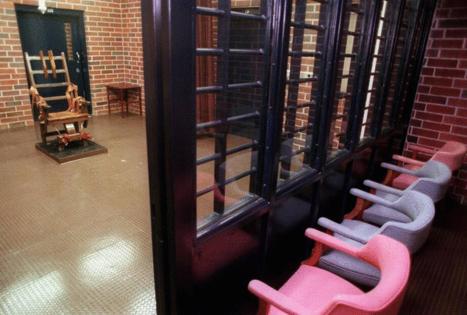'Akin to suicide': South Carolina inmate defends request to have attorney select method of execution
Published in News & Features
COLUMBIA, S.C. — Freddie Owens, who next month will likely be the first person executed in South Carolina since 2011, has cited his Muslim faith in asking the state Supreme Court to allow his attorney to sign a document selecting Owens’ method of execution.
Signing the document himself, his attorney said, would be the equivalent of suicide and in violation of his religious beliefs.
Owens is set to be executed on Sept. 20.
“Mr. Owens has a long-standing, deeply held religious conviction that physically signing the election form is taking an active role in bringing about his own death and is thus akin to suicide. Mr. Owens’s Muslim faith teaches that suicide is a sin, and it is forbidden,” wrote attorney Emily C. Paavola in a court filing submitted Thursday.
South Carolina’s death penalty laws require inmates condemned to death to select their method of execution from three available options: lethal injection, firing squad and electrocution. If an inmate does not make a selection, electrocution is considered the default method.
Owens, 46, received the death sentence for the 1997 murder of store clerk Irene Graves during a string of robberies in the Greenville area. In Thursday’s filing, Owens’ attorney wrote that he wished to “protect his desire not to die by electrocution.”
In the filing, Paavola wrote that the intention of signing the form was not to “force any particular decision” on Owens, but to protect his constitutional right to the exercise of his faith.
“While the distinction between Mr. Owens signing the election form himself and having his counsel sign the form on his behalf may seem technical or subtle, it is of great importance to Mr. Owens,” Paavola wrote.
Owens’ selection of the method for his execution must be made by Sept. 6.
On Wednesday, South Carolina Department of Corrections Director Bryan Stirling submitted a sworn affidavit, required by law, testifying to the potency, purity and stability of the pentobarbital in the department’s possession, which could be used to carry out execution by lethal injection. The drug, a barbituate that is used in low doses as a sedative, was tested by SLED, according to the affidavit.
Stirling also stated that the state’s electric chair was functioning and had been tested on June 25. Department personnel had also completed the necessary training and were in possession of the required firearms and ammunition if Owens selected the firing squad as his method of execution.
Executions in South Carolina were put on pause after the state ran out of the drugs used in the lethal injection process. Like many states across the country, the state Department of Corrections struggled to obtain the drugs from companies that did not want to be associated with executions. In May 2023, South Carolina Gov. Henry McMaster signed a “shield” law to protect the identities of the drug manufacturers as well as individuals involved in the execution.
This came after the state passed a law in 2021 making electrocution the default method of execution while adding the firing squad as an option.
_____
©2024 The State. Visit thestate.com. Distributed by Tribune Content Agency, LLC.







Comments